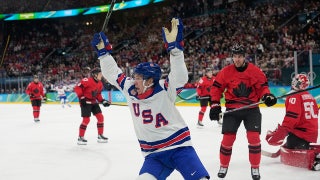By Ian Ransom
MELBOURNE (Reuters) - Unheralded New Zealand's run to the World Cup finals has led to soccer overtaking rugby in the popularity stakes at home, All Whites coach Ricki Herbert said on Sunday.
Herbert, the mastermind behind their return to the World Cup fold after 28 years in the wilderness, said he had been overwhelmed by the buzz at home after qualification was sealed with a 1-0 win over Bahrain in November.
"It's been staggering. I mean '82 I thought was a fantastic time, but this has been incredibly successful," said Herbert, a central defender in the All Whites World Cup team in Spain.
"I think if you'd been there since (the Bahrain match), (soccer) is not third or fourth-ranked (in popularity). It's probably number one at the moment."
"You can only applaud the players for what they've done and what they've done for a nation really to bring football back to where it should be."
The All Whites will warm up for the June 11-July 11 tournament with a friendly against trans-Tasman rivals Australia on Monday before jetting off to play champions Italy, Slovakia and Paraguay in Group F in South Africa.
All Whites captain Ryan Nelsen said the qualification's explosive impact in the rugby-mad country mirrored the experience of their neighbor in 2005, when the Socceroos broke their own 32-year drought with a qualifying win over Uruguay.
"All of a sudden they qualified to Germany and next thing you know -- I've sat in press conferences when I've played against Australia and there was four of you there," Nelsen told a room bulging with camera crews and a few dozen journalists.
"Now look at you. It's packed. And it's the same thing that's happening in New Zealand ... If we played Australia in New Zealand there wouldn't be a stadium big enough to hold the crowd."
"The great thing about it is this team in four years time will be stronger," added Nelsen, reeling off a list of young players poised to break into Europe's toughest leagues.
The Blackburn Rovers captain made his international debut in 1999, marshalling the defense in sides that struggled to develop amid weak opposition in the Oceania region.
Herbert's painstaking molding of a disparate mix of overseas-based players into one of the 32 finalists has raised hopes at home of a surprise or two in South Africa.
"The brutal reality of going to the World Cup is that you could get beaten five-nil every game," said Nelsen.
"But the difference with this team is that we'll be unbelievably competitive. We could get beaten, but we'll be dying trying to get a win."
(Editing by Patrick Johnston)








































